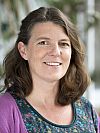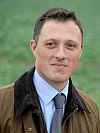World Water Day
Working with nature to minimise flooding: are the rewards worth the risk?
Date: 22nd March 2018
Location: Chowen lecture theatre, University of Sussex
SSRP World Water Day debate, 22nd March 2017
Our debate panel comprised of:
Lydia Burgess-Gamble

Lydia started working in the water industry 19 years ago when she undertook a PhD investigating River Restoration project appraisal and monitoring procedures at Queen Mary College, London. She has now been at the Environment Agency for over 15 years in a wide range of Flood Risk Management roles but always with an interest in managing flood risk whilst improving the environment for people and wildlife. For the last 5 years she has been working in a Flood Risk Research team as a Principal Scientist leading projects on Working with Natural Processes to reduce flood risk. In this role she has developed a Research framework which defines high priority areas of research in this field, and she has also project managed a suite of projects to develop the Evidence Base for Natural Flood Management. She has also worked with NERC to establish the recent Natural Flood Management Research call.
Fiona Mathews

Fiona Mathews is Professor of Environmental Biology at the University of Sussex. She is also chair of the Mammal Society, and led the 25-year review of the status of British mammals, soon to be published by Natural England. The conservation status of beavers proved to be one of the more controversial topics, given the extent of illegal releases: she has recommended that be given the status of ‘Endangered’ in Britain. Much of her work focuses on environmental sustainability, and she has a particular interest in resolving conflicts between humans and wildlife.
Tom Ormesher

Tom Ormesher is NFU Environment and Land Use Adviser in South East England; advising NFU members on environmental matters and advocating their interests in relation to development planning, water resources, water quality, flooding, land drainage, rights of way and agricultural tenancy.
Chair: Chris Sandom

Chris is a lecturer in Biology, specialising in rewilding and paleo ecology. His research seeks to understand the natural functioning of ecological processes such as predation, herbivory and disturbance. His research is then applied to improving conservation practices in the field of rewilding.









